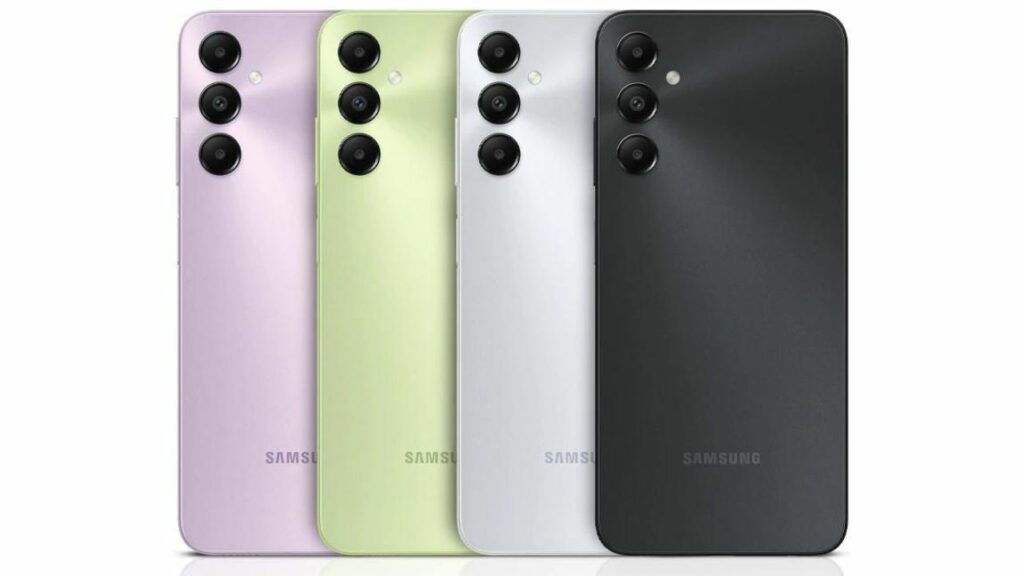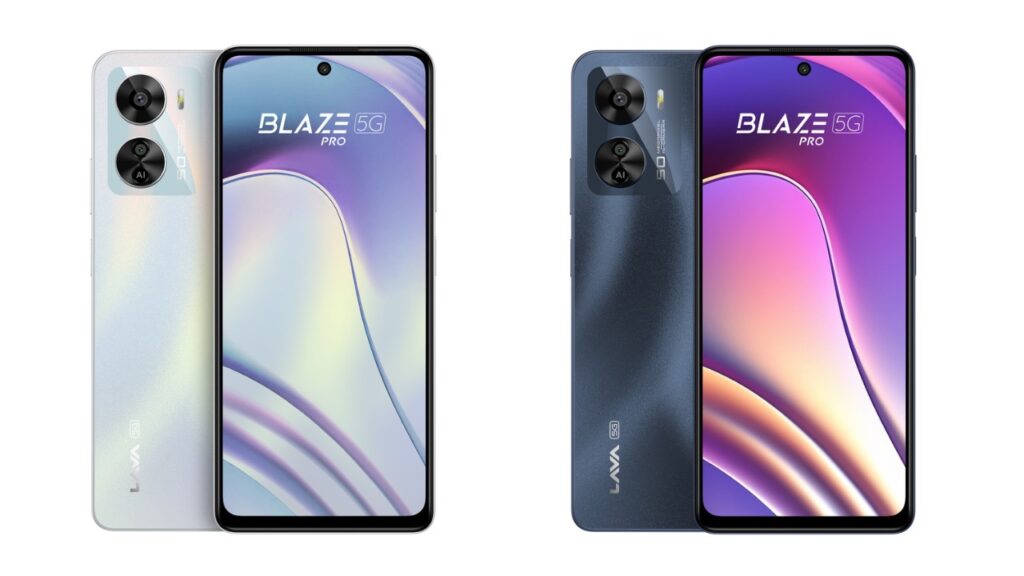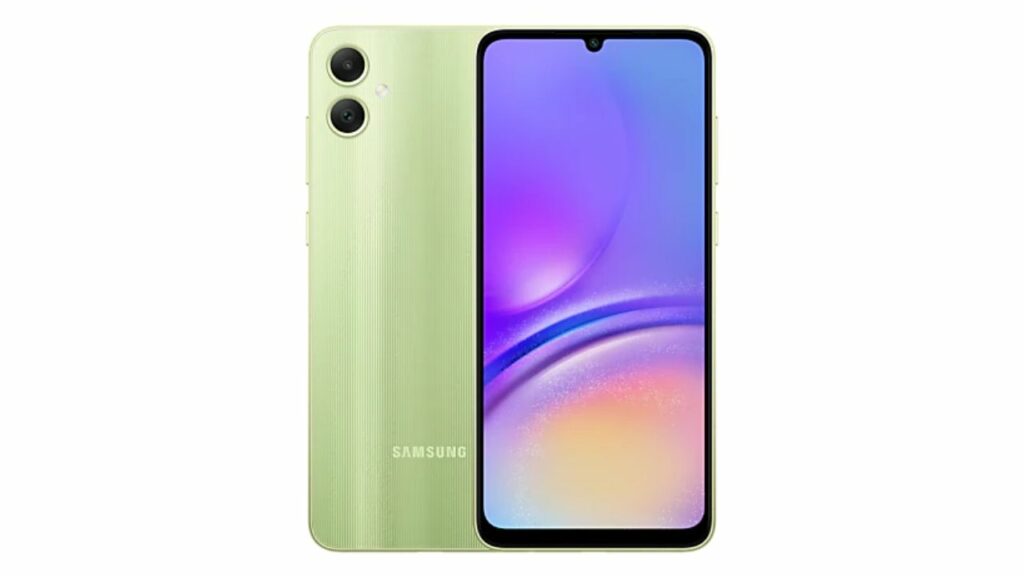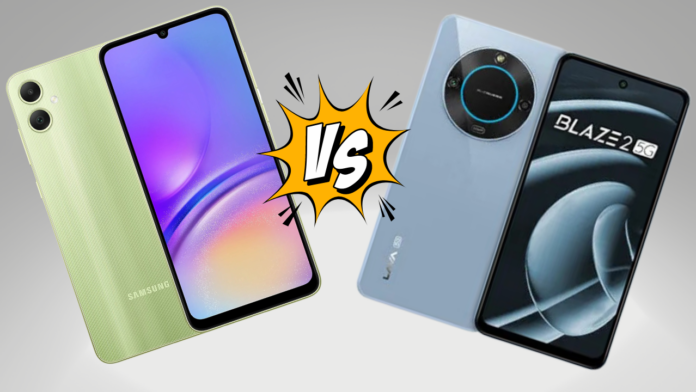In the ever-evolving landscape of the Indian smartphone market, two budget-friendly contenders, the Samsung Galaxy A05 and the Lava Blaze 2 5G, have captured consumers’ attention with their enticing starting price of Rs 9,999. As users navigate the myriad options, a detailed comparison of Galaxy A05 vs Lava Blaze 2 5G becomes imperative to make an informed decision.
Galaxy A05 vs Lava Blaze 2 5G: Specs War
| Feature | Samsung Galaxy A05 | Lava Blaze 2 5G |
| Display | 6.7-inch LCD | 6.56-inch LCD |
| Processor | MediaTek Helio G85 | MediaTek Dimensity 6020 |
| RAM | Up to 6GB | Up to 6GB |
| Camera | 50-megapixel primary camera and a 2-megapixel depth sensor | 50-megapixel main camera and a VGA camera on the back |
| Battery | 5000mAh | 5000mAh |
| Fast Charging | 25-watt | 18-watt |
Display Dynamics

The Samsung Galaxy A05 boasts a sizable 6.7-inch LCD display, offering an immersive canvas for multimedia consumption. In contrast, the Lava Blaze 2 5G adopts a slightly smaller 6.56-inch LCD screen. While the size discrepancy may be marginal, choosing between a larger or more compact display largely depends on individual user preferences for media viewing, gaming, and overall device portability.
Processing Power

Under the hood, the Galaxy A05 is powered by the MediaTek Helio G85 processor, providing ample daily performance. On the other hand, the Lava Blaze 2 5G takes a different approach with the MediaTek Dimensity 6020 processor, emphasizing its prowess in handling more demanding applications and multitasking. The Processor choice becomes a pivotal factor for users who prioritize seamless performance in their smartphone usage.
Read more:
Samsung Galaxy A05 launched in India: Top 5 Competitors
Inside the Lens: Everything About The Camera Assistant App From Samsung
Memory Matters
In the Galaxy A05 vs Lava Blaze 2 5G battle, both smartphones offer a maximum of 6GB of RAM, ensuring smooth multitasking capabilities. The similarity in RAM capacity levels the playing field regarding overall system responsiveness. Users who prioritize multitasking and handling multiple applications simultaneously can find solace in the comparable RAM configurations of these devices.
Photography Prowess

Photography enthusiasts would be pleased to note that both smartphones feature a 50-megapixel main camera. However, the devil lies in the details. The Galaxy A05 accompanies its primary camera with a 2-megapixel depth sensor, enhancing its capabilities for portrait photography. On the other hand, the Lava Blaze 2 5G opts for a VGA camera, which may impact the overall quality of depth perception in photos. The decision here hinges on whether users prioritize portrait photography or if a standard camera setup suffices for their needs.
Endurance on the Go
A critical aspect for users constantly on the move is that the battery life of a smartphone plays a pivotal role in the decision-making process. Both the Galaxy A05 and the Lava Blaze 2 5G pack a 5000mAh battery, promising a balance between endurance and device weight. Users seeking a device that can withstand a day of moderate to heavy usage without frequent trips to the charging port will find these offerings compelling.
Charging Speeds
In our fast-paced world, the speed at which a smartphone charges can be a game-changer. The Galaxy A05 takes the lead in this department with a 25-watt fast-charging capability, potentially reducing user downtime. Meanwhile, the Lava Blaze 2 5G offers an 18-watt fast-charging solution. While not as rapid as its counterpart, it still caters to users seeking a quick top-up without compromising on battery longevity.

In the labyrinth of budget smartphones, the Samsung Galaxy A05 and the Lava Blaze 2 5G carve their paths with distinctive features. The choice ultimately boils down to user preferences — whether a larger display, faster charging, or a robust processor takes precedence. As consumers navigate through the myriad options, this detailed comparison aims to serve as a compass, guiding them toward a smartphone that aligns seamlessly with their unique needs and preferences in the dynamic realm of entry-level devices.


